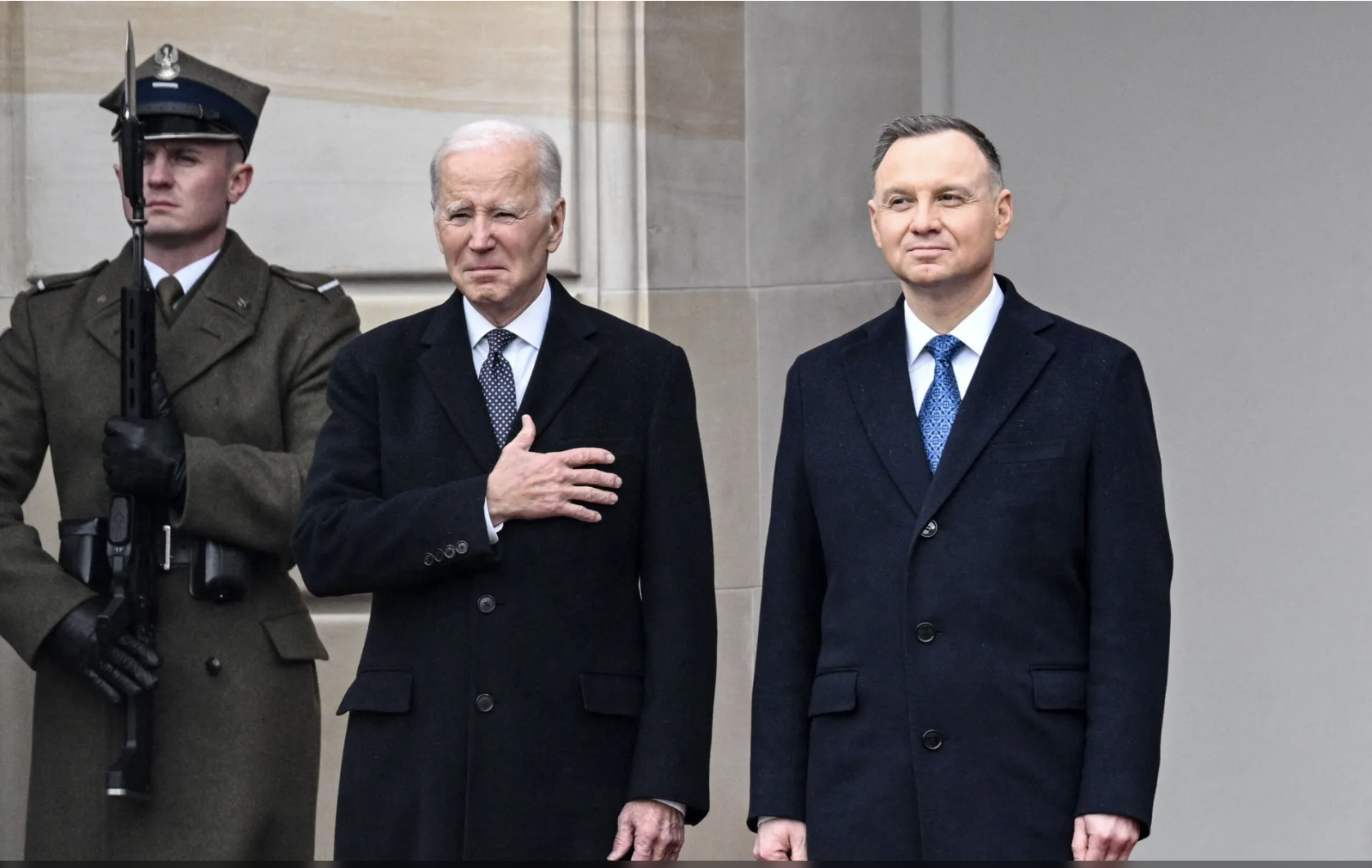Ukraine War Won’t Give Poland a Free Pass on Democracy

United States President Joe Biden’s trip to Warsaw last week — his second to Poland in a year — once again saw the American leader frame the war raging in Ukraine as a struggle between democracy and autocracy.
For some, at first glance the framing seemed ironic — Poland’s own government has been accused of democratic backsliding, with the country’s ruling Law and Justice Party (PiS) criticized for eroding judicial independence, attacking LGBTQ+ communities and violating human rights on the Poland-Belarus border. And when running for office in 2020, Biden hadn’t held back his disdain for Poland’s populists, likening them to Belarusian autocrat Alexander Lukashenko and Hungary’s self-styled illiberal leader Viktor Orbán.
Campaign rhetoric aside, few would have predicted that Biden and Polish President Andrzej Duda would become firm allies— but war makes for strange bedfellows. And Poland’s response to Russia’s war in Ukraine since February 24, 2022, has been remarkable — taking in 1.5 million Ukrainian refugees, providing humanitarian and military support, and successfully championing sending Leopard tanks to Ukraine.
Biden’s trip is testament to a close U.S.-Polish strategic alignment. So, is this a case of expediency outweighing principle? Is the Biden administration sidelining anxiety about democratic backsliding for geopolitical reasons? Not really.
Though international media has mainly focused on Poland’s important role in the war, the U.S. and the European Union have both continued to push the democratic agenda in the country.
As a guarantor of Poland’s security, Washington is in a great position to remind its ally of the need to improve the quality of its democracy. And the Biden administration has continued to raise its concerns over media freedom, judicial independence and respect for minority rights in the country. After all, good friends and allies should hold each other accountable to the values that underpin their relationship.
On this front, last week’s presidential visit was also deftly handled.
Some opposition politicians had raised worries beforehand that Biden’s trip would boost the stature of PiS — something of considerable concern to them, as Poland is just months away from what’s likely to be a very close parliamentary election. The fear was PiS would exploit the event for electoral purposes.
But Biden made a point in his speech to address and praise Poland as a whole — not just the government or one party over another. Describing the country as “one of our great allies,” he thanked President Duda, Prime Minister Mateusz Morawiecki, Warsaw’s Mayor Rafał Kazimierz Trzaskowski and “all the former ministers and presidents, as well as mayors and Polish political leaders from across the country.”
Biden also made a point of meeting with both ministers and representatives of the opposition. And Duda himself reciprocated by emphasizing bipartisanship and calling for a meeting of the country’s National Security Council on the first anniversary of the Ukraine war — the council comprises figures from across the political spectrum.
Additionally, at the end of last year, with bipartisan Congressional support, the U.S. Agency for International Development (USAID) unveiled a new program of locally driven initiatives in Central Europe — including in Poland — with the goal of strengthening democratic institutions, civil society and independent media. So, no sidelining of democracy there.
In his speech in Warsaw, Biden declared: “The democracies of the world have grown stronger, not weaker. But the autocrats in the world have grown weaker, not stronger.” And for most Poles this rings true, as until a little over 30 years ago, their country was under the heel of the Soviet Union.
That’s not to say that liberal minded Poles don’t fear for the country’s democracy, but freedom is treasured here. And while PiS has rolled back hard-won civil rights, elections in Poland are still free, and the liberal opposition continues to win them in most major cities. The country’s senate is controlled by the liberal opposition, and Polish civil society is active and thriving.
Still, the struggle for democracy hasn’t gone away, but neither are there signs that either the U.S. or the EU will give Poland a free ride — regardless of its importance for the fight across the border in Ukraine.
Just recently, the European Commission sued Poland at the Court of Justice of the European Union for challenging the primacy of EU law over national law. And despite widespread praise for Poland’s strong support for Ukraine, the bloc still won’t release billions of euros in pandemic recovery and cohesion funds until judicial independence is reestablished in the country.
PiS holds national sovereignty as a supreme value, and that’s why it was especially powerful to hear Biden linking sovereignty and democracy. Poland’s Western partners shouldn’t refrain from making it clear that there can be no free pass when it comes to democracy.

